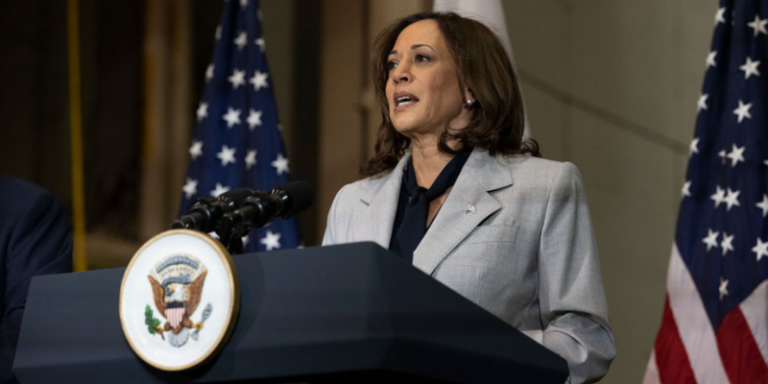Kamala Harris’ Economic Ideas
What would be in store for the economy if Kamala Harris became president?
By: Andrew Moran | August 21, 2020 | 425 Words

Kamala Harris (Photo by Joel KowskyNASA via Getty Images)
If Joe Biden wins the presidential election in November, will he serve out his full four-year term? There has been a lot of speculation in conservative media that Biden could step down before his first term is up due to his cognitive or physical health. This would result in Senator Kamala Harris (D-CA) – as his vice president – becoming the next U.S. president. Harris said during her own presidential campaign that she would use the power of the executive branch to get what she wants if Congress failed to act. Since the possibility of her becoming the 47th president is high, let’s have a look at her economics.
The Economics of Kamala Harris
Despite the mainstream media’s recent claim that Harris is a moderate, her economic agenda and votes suggest that she leans heavily to the left. Harris went as far as describing herself as a progressive in an interview during primary season.
The senator opposed President Donald Trump’s Tax Cuts and Jobs Act (TCJA) of 2017, and later demanded the repeal of the legislation’s tax cuts for wealthy Americans.
Harris has endorsed a Medicare for All plan. However, throughout the primaries, she shifted the proposal to keep private insurance, which did not go over well with Democrat voters.
In April, Harris and Senator Elizabeth Warren (D-MA) introduced the Price Gouging Prevention Act. This was legislation that would enhance the Federal Trade Commission’s (FTC) power to enforce a ban on price hikes of consumer goods during national emergencies. The bill considered anything above 10% to be price gouging. She also came up with a $100 billion housing strategy for people living in certain areas, including $25,000 per person for down payment and closing costs to buy a home.
Before the primary debates started, her campaign released a plan that would mandate businesses to apply for a written document from the Equal Employment Opportunity Commission (EEOC) that certifies their company pays men and women the same. If firms failed to receive certification, they would pay fines of 1% of earnings for every 1% of the difference in pay. It was an awkward idea because her Senate office and campaign had a gender pay gap, which would have resulted in a 6% fine.
Harris hasn’t made economics a defining issue. She prefers to appeal to progressive issues like social justice and environmentalism. But she still has many economic policy ideas, and by looking at those ideas, we can see her economic strategy. For Kamala Harris, the solution to just about every problem is to throw money at it until it goes away.
















